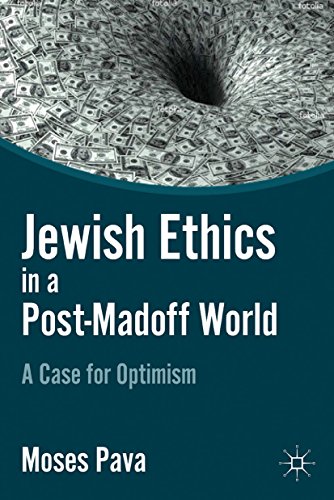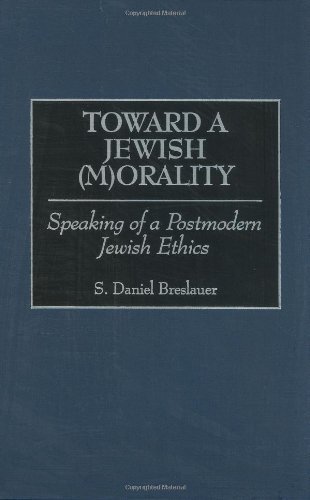Philosemitism in History by Jonathan Karp

By Jonathan Karp
The Library of Qumran: On the Essenes, Qumran, John the by Hartmut Stegemann

By Hartmut Stegemann
Jerusalem 1900: The Holy City in the Age of Possibilities by Vincent Lemire,Catherine Tihanyi,Lys Ann Weiss

By Vincent Lemire,Catherine Tihanyi,Lys Ann Weiss
In this masterly heritage, Lemire makes use of newly opened documents to discover how Jerusalem’s elite citizens of differing faiths cooperated via an intercommunity municipal council they created within the mid-1860s to manage the affairs of all population and enhance their shared urban. those citizens embraced a spirit of recent urbanism and cultivated a civic id that transcended faith and mirrored the really secular and cosmopolitan lifestyle of Jerusalem on the time. those few years could change into a tipping aspect within the city’s history—a pivotal second whilst the horizon of threat used to be nonetheless open, earlier than the council broke up in 1934, lower than British rule, into separate Jewish and Arab factions. Uncovering this frequently ignored diplomatic interval, Lemire unearths that the fight over Jerusalem used to be no longer traditionally inevitable—and for this reason isn't inevitably intractable. Jerusalem 1900 sheds mild on how the Holy urban as soon as functioned peacefully and illustrates the way it may sooner or later accomplish that again.
Jewish Ethics in a Post-Madoff World: A Case for Optimism by M. Pava

By M. Pava
The Holy Fire: The Teachings of Rabbi Kalonymus Kalman by Nehemia Polen

By Nehemia Polen
Toward a Jewish (M)Orality: Speaking of a Postmodern Jewish by S.Daniel Breslauer

By S.Daniel Breslauer
Moving the point of interest clear of the exposition of 1 specific philosopher, this specific e-book deals a confident, postmodern method of modern Jewish pondering mixed with research of contemporary Jewish suggestion, reflections on Jewish legislations, mysticism, background, and theology. This exploration of postmodernism in Judaism and its relevance as an ethical ordinary concentrates on 3 simple components in postmodernism: cognizance to different, utilizing the textual content as a prism for producing trade realities, and popularity of the impossibility of absolute wisdom. whereas guarding opposed to Jewish dogmatism, this procedure at the same time stimulates Jewish creativity. sleek and postmodern methods to Judaism which are tested comprise these of Leo Baeck, Martin Buber, Hermann Cohen, Jacques Derrida, Emmanuel Levinas, and Franz Rosenzweig. contemporary contributions comprise thinkers akin to Eugene B. Borowitz, J. David Bleich, David Novak, and Edith Wischograd.
The diversified chapters within the publication will entice a various scholarly viewers. Jewish students and other people drawn to sleek Jewish notion will enjoy the diversity of matters addressed within the textual content. The e-book assumes that readers have little wisdom of both Judaism or postmodernism so those phrases are defined, which make the paintings obtainable to the normal reader. The booklet demanding situations the modernism of mainstream modern Jewish ethics, as a result, all readers will learn how to recognize the impression and price of the rising postmodern method of Jewish ethical thought.
The Last Trial: On the Legends and Lore of the Command to by Shalom Spiegel,Judah Goldin

By Shalom Spiegel,Judah Goldin
“We locate that the tale of Abraham and Isaac rises nearly spontaneously within the brain of 1 new release after another.... continually earlier and current react to and upon one another, and existence is given an order, a coherence, through the subjects which govern the Holy Scriptures and the reinterpretations of these themes.”
—from the creation by way of Judah Goldin
Shalom Spiegel’s vintage examines the full physique of texts, legends, and traditions touching on the Binding of Isaac and weaves them jointly right into a definitive examine of the Akedah as one of many critical occasions in all of human historical past.
Spiegel the following offers the version for exhibiting how legend and historical past have interaction, how the earlier can be made understandable via current occasions, and the way the current may well be understood as a renewal of revelation.
The Jews' State: A Critical English Translation by Theodor Herzl,Henk Overberg

By Theodor Herzl,Henk Overberg
"The Jews' country" is over 100 years outdated. The paintings is either catalyst and prophecy. Catalyst: conversing either to Jews and to the foreign group, it almost introduced the trendy debate a couple of sleek country for Jews. Prophecy: it foretold the complete scope of this debate, its timing, its unfold, its nature, its parameters. it's all there in embryo for us to learn and contemplate. This little ebook keeps to notify conceptions and arguments concerning the place on Jews of their country and on the earth, and in regards to the dating among Jews and their fellow humans. In a really actual feel, it nonetheless deeply courses how we view the modern heart East.
Translated and retranslated numerous instances and into many languages because it used to be released, this current translation is one in all in basic terms 3 English models which have been tried within the century considering the fact that its first e-book, the 1st in English in twenty-five years. Its issues are either textual content and context. although the textual content has been with us ever for the reason that is ebook, it's the context that wishes recreating. one of the components that experience created distance among us and the area within which The Jews' State was once created comprise: The adventure of the area and the Jewish group over the last century, the salience of anti-Semitism, the Holocaust, the formations and improvement of the country of Israel, the bothered life of the Jewish nation ever due to the fact that its inception, the continued Jewish diaspora and its courting with the kingdom and international. the typical understandings which Theodore Herzl assumed in his readers have dissipated and vanished, and with them a feeling of his book's import and impression. those understandings have to be retrieved and recreated.
The current variation is accordingly an try out either at presentation and retrieval: Presentation of the textual content within the language of at the present time: retrieval of the context which gave upward thrust to it. This twin functionality informs the 3 major elements of this variation. Its first half is an account of the ideological and social worlds during which Herzl labored and wrote, the Jewish global and the mainstream global, and it argues that Herzl's interplay with either those worlds rests on a few advanced attitudes on his half during which approval, compliance, critique, and rejection all performed a job. There follows a piece on The Jews' State itself, which selections up at the major issues that occupied Herzl, and discusses their scope and therapy. this primary half finishes with an outline of the preliminary effect of The Jews' nation on Herzl's world.
The moment a part of this version deals a presentation of the textual content itself, within the kind of a translation, which makes an attempt to recreate in a contemporary idiom the content material of the paintings in addition to the various peculiarities of Herzl's type. The 3rd a part of this version involves a serious thesaurus, facing a few salient concerns in translation in addition to the reason of a couple of phrases and allusions within the textual content, whose that means isn't really instantly seen to fashionable readers. The variation closes with a bibliography."
Luke the Historian of Israel’s Legacy, Theologian of by David Paul Moessner

By David Paul Moessner
David Moessner proposes a brand new realizing of the relation of Luke’s moment quantity to his Gospel to open up a complete new analyzing of Luke’s foundational contribution to the hot testomony. For postmodern readers who locate Acts a ‘generic outlier,’ dangling tenuously someplace among the ‘mainland’ of the evangelists and the ‘Peloponnese’ of Paul—diffused and pressured and shunted to the backwaters of the recent testomony by means of those signature corpora—Moessner plunges his readers into the hermeneutical surroundings of Greek narrative poetics and elaboration of multi-volume works to inhale the rhetorical swells that animate Luke’s first readers of their engagement of his narrative. during this selection of twelve of his essays, re-contextualized and re-organized into 5 significant topical activities, Moessner showcases a number of Hellenistic texts and rhetorical tropes to focus on a number of the indications Luke offers his readers of the a number of methods his Acts will stick with "all that Jesus started to do and to coach" (Acts 1:1) and, therefore, convey coherence to this dominant block of the recent testomony that has lengthy been cut up aside. by way of collapsing the realm of Jesus into the phrases and deeds of his fans, Luke re-configures the importance of Israel’s "Christ" and the "Reign" of Israel’s God for all peoples and areas to create a brand new account of ‘Gospel Acts,’ discrete and distinctively varied than the "narrative" of the "many" (Luke 1:1). Luke the Historian of Israel’s Legacy combines what no research of the Lukan writings has formerly entire, integrating seamlessly ‘generically-estranged’ volumes into one new entire from the purpose of the only composer. For Luke is the Hellenistic historian and concurrently ‘biblical’ theologian who arranges the only "plan of God" learn from the script of the Jewish scriptures—parts and entire, severally and together—as the saving ‘script’ for the full international via Israel’s anguish and raised up "Christ," Jesus of Nazareth. within the introductions to every significant subject of the essays, this famous student of the Lukan writings bargains an epitome of the most gains of Luke’s theological ‘thought,’ and, in a last Conclusions bankruptcy, weaves jointly a accomplished synthesis of this new analyzing of the total.
Parables for Our Time: Rereading New Testament Scholarship by Tania Oldenhage

By Tania Oldenhage
New testomony students haven't without delay faced the horror of Nazi crimes, Oldenhage argues, yet their paintings has still been deeply suffering from the occasions of the Holocaust. through putting twentieth-century biblical scholarship inside of its particular old and cultural contexts, she is ready to hint the method in which the Holocaust progressively moved into the collective cognizance of latest testomony students, either in Germany and within the usa. Her concentration is at the scholarly interpretation of the parables of Jesus. She units the degree with the paintings of Wolfgang Harnisch who exemplifies the issues surrounding Holocaust remembrance within the Germany of the Eighties and Nineteen Nineties. She then turns to Joachim Jeremias's eminent paintings at the parables, first released in 1947. Jeremias's anti-Jewish rhetoric, she argues, may be understood not just as a perpetuation of an age-old interpretive trend, yet as consultant of German problems in responding to the Holocaust instantly after the warfare. Oldenhage is going directly to discover the way Jeremias's procedure was once challenged through biblical students within the U.S. through the Nineteen Seventies. specifically, she examines the flip to literature and literary thought exemplified within the works of John Dominic Crossan and Paul Ricoeur. Nazi atrocities turned a part of the cultural reservoir from which Crossan and Ricoeur drew, she exhibits, even supposing they by no means engaged with the historic evidence of the Holocaust. In end, Oldenhage bargains her personal analyzing of the myth of the depraved husbandmen, demonstrating how the flip from historic to literary feedback opens up the textual content to interpretation in gentle of the Holocaust. If the parables are to be significant in our time, she contends, we needs to take account of the troubling resonances among those historic Christian tales and the atrocities of Auschwitz.